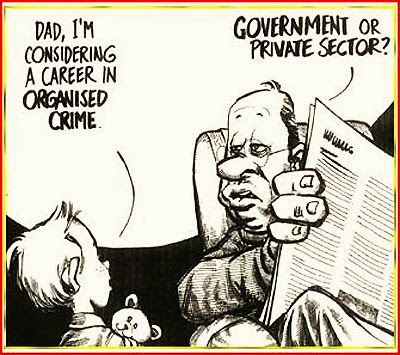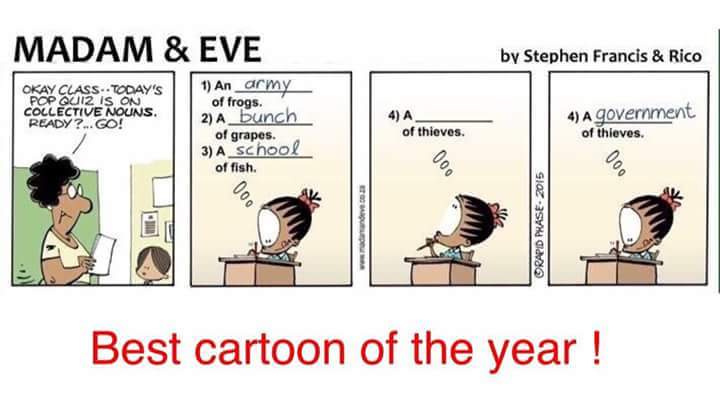It saddens me very much to see the decline in this sacred and noble profession over recent decades. A key principle in safeguarding any highly esteemed profession in society is that members of such a profession must be financially stable and secure and need not worry about their rice bowl.
It is this aspect of the medical profession that is indeed being severely threatened in recent years.
The fresh young doctor begins his or her career waiting for months and even up to a year to get a job. Those who need to feed their families are forced to find temporary jobs as a waiter, cab driver or clinic assistant. Some may see this as a good humbling “job experience”.
But in truth, it is shameful and demoralising after five to six intense years of training and with great expectations. Finally, the doctor gets a job, a short-term contract that has no security, reduced benefits and a “constant threat” of termination hanging over his head.
The rigorous training period of two years is already very challenging with a drop-out rate of 20%. With a short-term contract, the young doctor will face added pressure, especially under severe and strict conditions, and the potential of abuse by autocratic bosses.
While the authorities may say that this is a good thing that will push the doctors to perform better, the environment of uncertainty where a doc-eats-doc attitude is needed to succeed is unhealthy for such an esteemed profession.
Allowing doctors to enter public service on contract is a bad precedent and a sad beginning for the career of the doctor.
Is there any other public service office being offered “contract staff” as a group with the Government?
The answer should have been to create more posts and find the resources and finances to accommodate the doctors whom we have agreed to train over the past decade.
If we have made the mistake of training too many doctors, we should bear the brunt of it by finding them jobs.
Unavoidably, a good percentage of these doctors will have to join the private sector as general practitioners (GP) before they are trained as qualified family practitioners. The so-called market forces, hand-in-hand with the fee regulations, now cap the consultation fee at a mere RM25. A recent press release stating that GPs were “agreeable” to reducing consultation fees to between RM10 and RM15 is indeed shocking and certainly a misrepresentation of the poor struggling GP.
Agreeing to such a reduction will definitely be the death knell for the GP or family practitioner.
Simple mathematics will show that no solo GP can survive with such a low consultation fee. Currently, a practice’s overheads range from RM12,000 to RM20,000 per month.
At RM10 per consultation, the doctor needs to see 2,000 patients per month to break even, which is about 70 patients a day.
This is absurd. No doctor should work under those conditions where he or she is forced to find other forms of income, apart from consultation fees.
With consultation fees at RM10, companies and insurance organisations would push the panel doctor’s fee even lower to RM8 or RM9.
Have we forgotten that the graduate has to repay his PTPN loans? Also, many parents have forked out between RM300,000 and even up to a million ringgit to pay for their children’s education.
Add all that in and the GP has become a slave to his job from day one.
Looking back to 60 years ago when I was a child, my mother was already paying RM10 to RM15 as total consultation fee for medical treatment.
A haircut at the barber and a bowl of mee were both only 50 sen then.
Thus, reducing a doctor’s consultation fee to that of a current barber’s fee or two cups of coffee is an insult to the medical profession.
A plumber or electrician charges no less than RM50 for a visit. Proportionate to a specialist’s consultation fee, the GP’s consultation should be no less than RM50.
How do we address the fact that poorer segments of society may not be able to afford healthcare costs? One is that the public sector must continue to bear the burden for the poor. Secondly, doctors are always charitable and have always been giving discounts and even free treatment to the poor.
The doctor, however, cannot afford to give free treatment unless he is able to pay his rent, utility bills, bank loan repayment and his staff comfortably."
Read more at http://www.thestar.com.my/opinion/letters/2017/01/24/docs-face-uncertain-livelihood/#45vzasFXgL3M5YUT.99
As a comparison, a popular sinseh working from home, who charges Rm40 for each visit, and has daily queue numbers easily exceeding 100, is laughing all the way to the bank. The exceptionally low overheads, secret herbs (only collection and home preparation costs), and the numbers would make any qualified practising doctors envious.





No comments:
Post a Comment